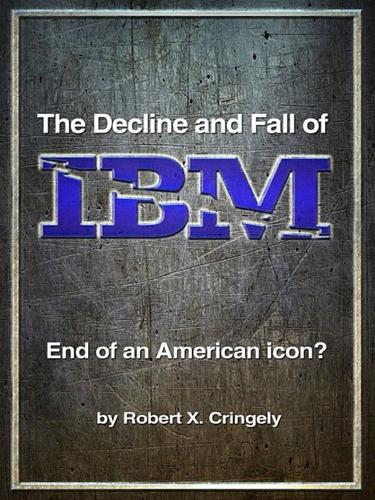
The Decline and Fall of IBM: End of an American Icon?
by
Robert X. Cringely
Published 1 Jun 2014
THE DECLINE AND FALL OF IBM End of an American Icon? by Robert X. Cringely THE DECLINE AND FALL OF IBM End of an American Icon? Copyright © 2014 by Robert X. Cringely All rights reserved. Certain portions of this book appeared originally on www.pbs.org and are the property of the Public Broadcasting Service (PBS). Used with Permission. All Rights Reserved. Published by NeRDTV, LLC Formatted by Any Subject Books, London Epub edition: ISBN 978-0-9904444-1-1 Mobi (Kindle) edition: ISBN 978-0-9904444-0-4 Paperback edition: ISBN 978-0-9904444-2-8 In memory of Lois Cringely 1924-2014 CONTENTS Preface An 8-year-old boy tries to sell IBM on a dazzling idea, sparking a life-long interest for him in the company.
…
I’m not denying that IBM has to change to survive but there are ‘ways’ to do that that do not alienate half the workforce and, in that respect, IBM has missed the boat. The point is that IBM’s customers are not blind either to what is going on. On the plus side, the competition is not a lot different either so what is a hapless customer to do! nobodyimportant / August 27, 2013 / 4:50 am ABOUT THE AUTHOR Robert X. Cringely has been a Silicon Valley journalist and character for more than 30 years. An early employee of iconic companies including Apple and Adobe Systems, Cringely began his career as an engineer then transitioned into reporting and analysis, first at InfoWorld and since 1997 as one of the first Internet bloggers, first at pbs.org and now at cringely.com.
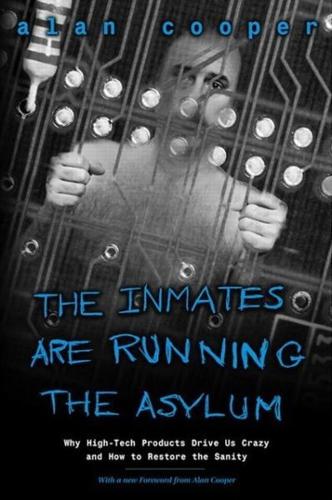
The Inmates Are Running the Asylum
by
Alan Cooper
Published 24 Feb 2004
Most good software engineers are at a disadvantage in the politeness realm. Robert X. Cringely says that programmers …are expressive and precise in the extreme but only when they feel like it. They look the way they do as a deliberate statement about personal priorities, not because they're lazy. Their mode of communication is so precise that they can seem almost unable to communicate. Call a nerd Mike when he calls himself Michael and he likely won't answer, since you couldn't possibly be referring to him.[5] [5] Robert X. Cringely, Accidental Empires, How the Boys of Silicon Valley Make Their Millions, Battle Foreign Competition, and Still Can't Get a Date, Addison-Wesley, 1992, ISBN: 0-201-57032-7.
…
I really appreciate the many people who provided moral support, anecdotes, advice, and time. Thanks very much to Daniel Appleman, Todd Basche, Chris Bauer, Jeff Bezos, Alice Blair, Michel Bourque, Po Bronson, Steve Calde, David Carlick, Jeff Carlick, Carol Christie, Clay Collier, Kendall Cosby, Dan Crane, Robert X. Cringely, Troy Daniels, Lisa Powers, Philip Englehardt, Karen Evensen, Ridgely Evers, Royal Farros, Pat Fleck, David Fore, Ed Forman, Ed Fredkin, Jean-Louis Gassee, Jim Gay, Russ Goldin, Vlad Gorelik, Marcia Gregory, Garrett Gruener, Chuck Hartledge, Ted Harwood, Will Hearst, Tamra Heathershaw-Hart, J.D.

The Secret War Between Downloading and Uploading: Tales of the Computer as Culture Machine
by
Peter Lunenfeld
Published 31 Mar 2011
Hiltzik, Dealers of Lightning: Xerox PARC and the Dawn of the Computer Age (New York: HarperCollins, 1999); Douglas K. Smith and Robert C. Alexander, Fumbling the Future: How Xerox Invented, Then Ignored, the First Personal Computer (New York: William Morrow, 1988). 20 . I take this phrase from Robert X. Cringely’s documentary for the Public Broadcasting System, The Triumph of the Nerds: The Rise of Accidental Empires (1996), which drew from his earlier book Accidental Empires: How the Boys of Silicon Valley Make Their Millions, Battle Foreign Competition, and Still Can’t Get a Date (New York: Harper Business, 1993). 21 .
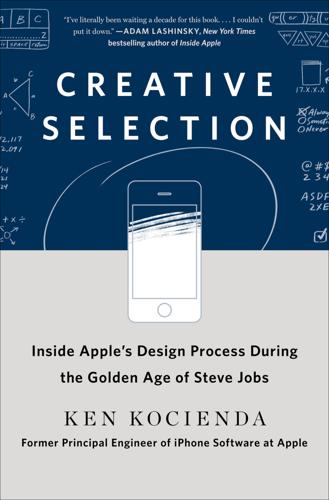
Creative Selection: Inside Apple's Design Process During the Golden Age of Steve Jobs
by
Ken Kocienda
Published 3 Sep 2018
“Steve Jobs Introduces Original iPad—Apple Special Event (2010),” YouTube: EverySteveJobsVideo. https://www.youtube.com/watch?v=_KN-5zmvjAo. Accessed November 16, 2017. This keynote was presented on January 27, 2010, at the Yerba Buena Center for the Arts in San Francisco. Cue to 1h30m to hear Steve talk about the intersection. 3. Robert X. Cringely, Steve Jobs: The Lost Interview. Furnace, Public Broadcasting Service (PBS) (as NerdTV), Oregon Public Broadcasting, John Gau Productions, 2012. Cue to 57m to hear Steve talk about proportionally spaced fonts on the Mac. http://www.magpictures.com/stevejobsthelostinterview/. 4. “Star Wars Blasters Sound Effect.
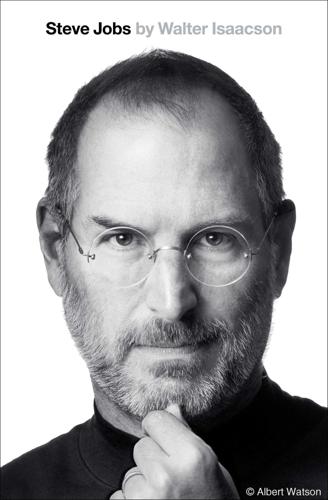
Steve Jobs
by
Walter Isaacson
Published 23 Oct 2011
Playboy, February 1985. Simpson, Mona. Anywhere but Here. Knopf, 1986. ———. A Regular Guy. Knopf, 1996. Smith, Douglas, and Robert Alexander. Fumbling the Future. Morrow, 1988. Stross, Randall. Steve Jobs and the NeXT Big Thing. Atheneum, 1993. “Triumph of the Nerds,” PBS Television, hosted by Robert X. Cringely, June 1996. Wozniak, Steve, with Gina Smith. iWoz. Norton, 2006. Young, Jeffrey. Steve Jobs. Scott, Foresman, 1988. ———, and William Simon. iCon. John Wiley, 2005. NOTES CHAPTER 1: CHILDHOOD The Adoption: Interviews with Steve Jobs, Laurene Powell, Mona Simpson, Del Yocam, Greg Calhoun, Chrisann Brennan, Andy Hertzfeld.
…
Leander Kahney, “What Made Apple Freeze Out Adobe?” Wired, July 2010; Jean-Louis Gassée, “The Adobe-Apple Flame War,” Monday Note, Apr. 11, 2010; Steve Jobs, “Thoughts on Flash,” Apple.com, Apr. 29, 2010; Walt Mossberg and Kara Swisher, Steve Jobs interview, All Things Digital conference, June 1, 2010; Robert X. Cringely (pseudonym), “Steve Jobs: Savior or Tyrant?” InfoWorld, Apr. 21, 2010; Ryan Tate, “Steve Jobs Offers World ‘Freedom from Porn,’” Valleywag, May 15, 2010; JR Raphael, “I Want Porn,” esarcasm.com, Apr. 20, 2010; Jon Stewart, The Daily Show, Apr. 28, 2010. Antennagate: Design versus Engineering: Interviews with Tony Fadell, Jony Ive, Steve Jobs, Art Levinson, Tim Cook, Regis McKenna, Bill Campbell, James Vincent.

Climbing Mount Improbable
by
Richard Dawkins
and
Lalla Ward
Published 1 Jan 1996
Even Darwinii would nowadays be written darwinii). If ever you see (and you often will) Homo Sapiens or homo sapiens it is always a mistake. Note, by the way, that the word ‘species’ is both singular and plural. The plural of genus is genera. *Judith Flanders has called my attention to the following amusingly relevant story in Robert X. Cringely’s book, Accidental Empires. The story concerns the Apple III, a desktop computer of the generation between the famous Apple II and the even more famous Macintosh, launched in 1980:‘…the automated machinery that inserted dozens of computer chips on the main circuit board didn’t push them into their sockets firmly enough.
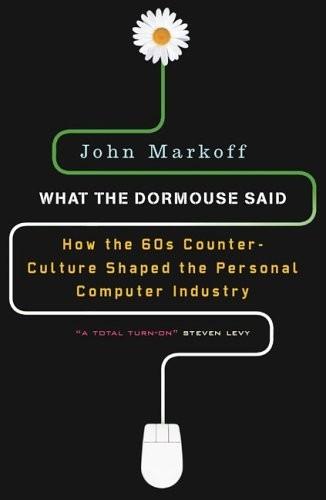
What the Dormouse Said: How the Sixties Counterculture Shaped the Personal Computer Industry
by
John Markoff
Published 1 Jan 2005
—Steven Levy, author of Hackers, Crypto, and Insanely Great “Beautifully written, What the Dormouse Said does that important job of placing in a historical context the development of modern computer technology. It tells us not only what happened, but why. These people changed our world as much as any group ever and now I understand not only how it came to be but also why it was probably inevitable.” —Robert X. Cringely, author of Accidental Empires and host of the PBS series Triumph of the Nerds “Reviled and demonized, then trivialized by the official culture it so exuberantly opposed, the counterculture of the 1960s nevertheless remains the 2000-pound gorilla in the china closet of recent American history.
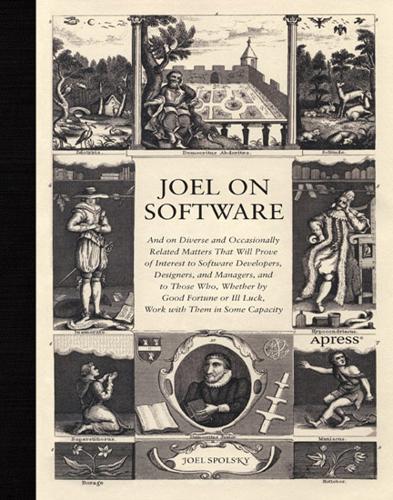
Joel on Software
by
Joel Spolsky
Published 1 Aug 2004
It could do everything wrong for a decade before it started to be in remote danger, and you never know—they could reinvent themselves as a shaved-ice company at the last minute. So don't be so quick to write them off. In the early 1990s everyone thought IBM was completely over: mainframes were history! Back then, Robert X. Cringely predicted that the era of the mainframe would end on January 1, 2000, when all the applications written in COBOL would seize up, and rather than fix those applications, for which, allegedly, the source code had long since been lost, everybody would rewrite those applications for client-server platforms.
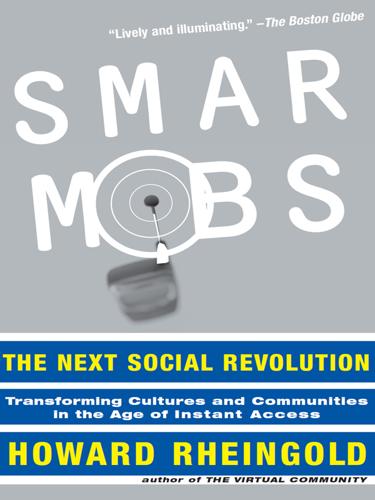
Smart Mobs: The Next Social Revolution
by
Howard Rheingold
Published 24 Dec 2011
“HPWREN Collaborates with Palomar College and SCTCA’s Tribal Digital Village: Computer Science Class Includes Multicast Technology Experiments,” High Performance Wireless Research and Education Network (HPWREN), 4 January 2002, <http://hpwren.ucsd.edu/news/020104.html > (20 February 2002). 63. Kade L. Twist, “Native Networking Trends: Wireless Broadband Networks,” Digital Beat, 20 September 2001, <http://www.benton.org/DigitalBeat/db092001.html > (23 February 2002). 64. Robert X. Cringely, “The 100 Mile-Per-Gallon Carburetor: How Ultra Wide Band May (or May Not) Change the World,” The Pulpit, 24 January 2002, <http://www.pbs.org/cringely/pulpit/pulpit20020124.html > (29 January 2002). 65. Tim Shepard, “Decentralized Channel Management in Scalable Multihop Spread-Spectrum Packet Radio Networks” (Ph.D. diss., MIT, 1995), <ftp://ftp.lcs. mit.edu/pub/lcs-pubs/tr.outbox/MIT-LCS-TR670.ps.qz> (23 February 2002). 66.
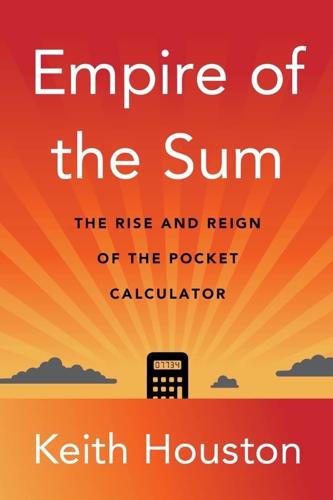
Empire of the Sum: The Rise and Reign of the Pocket Calculator
by
Keith Houston
Published 22 Aug 2023
Cortada, “How the IBM PC Won, Then Lost, the Personal Computer Market,” IEEE Spectrum, July 21, 2021, https://spectrum.ieee.org/how-the-ibm-pc-won-then-lost-the-personal-computer-market. 33 Dan Bricklin, “National Computer Conference,” Software Arts and VisiCalc, accessed January 20, 2022, http://www.bricklin.com/history/saincc.htm. 34 Fylstra, “Creation and Destruction of VisiCalc,” 8–9; Jennings, “VisiCalc 1979 (Part 3).” 35 Campbell-Kelly and Ceruzzi, “Interview with Dan Bricklin and Bob Frankston,” 28. 36 Campbell-Kelly and Ceruzzi, “Interview with Dan Bricklin and Bob Frankston,” 21–22; Jennings, “VisiCalc 1979 (Part 3).” 37 Campbell-Kelly and Ceruzzi, “Interview with Dan Bricklin and Bob Frankston,” 28. 38 Jennings, “VisiCalc 1979 (Part 3)”; Dan Bricklin, “The First Product,” Software Arts and VisiCalc, accessed January 21, 2022, http://www.bricklin.com/history/saiproduct1.htm. 39 Licklider, “Ten Years of Rows and Columns,” 327. 40 Bricklin, “Ben Rosen’s Reaction.” 41 Robert E. Ramsdell, “The Power of VisiCalc,” BYTE 5, no. 11 (November 1980): 192; John Markoff, “Radio Shack: Set Apart from the Rest of the Field,” InfoWorld, July 5, 1982, 43. 42 Gregg Williams and Rob Moore, “The Apple Story,” BYTE, January 1985, 174. 43 Robert X. Cringely, Accidental Empires (Reading, MA: Addison-Wesley, 1991), 71. 44 Mary Brandel, “PC Software Transforms the PC,” Computerworld, August 2, 1999. 45 Tim Bajarin, “The Application That Birthed The IBM PC,” Forbes, August 18, 2021, https://www.forbes.com/sites/timbajarin/2021/08/18/the-application-that-birthed-the-ibm-pc/. 46 John F.
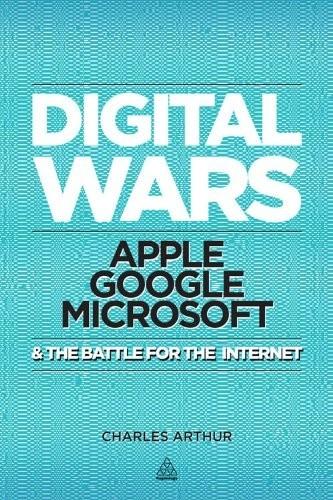
Digital Wars: Apple, Google, Microsoft and the Battle for the Internet
by
Charles Arthur
Published 3 Mar 2012
Bill Gates and Steve Jobs Gates and Jobs were long-time friends as well as rivals: a couple of decades earlier, they had taken girlfriends on double dates together. So what did Gates think of the threat from Cupertino? Speaking in June 1998 to another journalist, Mark Stephens (who writes under the more arresting moniker of Robert X Cringely), he grew ruminative. ‘What I can’t figure out is why he is even trying,’ Gates said to Stephens. ‘He knows he can’t win.’11 (Typically, Gates was being accommodating; typically, Jobs wasn’t. Stephens had been commissioned by Vanity Fair magazine to write an article about the relationship between Gates and Jobs.

Visual Thinking: The Hidden Gifts of People Who Think in Pictures, Patterns, and Abstractions
by
Temple Grandin, Ph.d.
Published 11 Oct 2022
The teenagers heard about a guy who had made a pirated phone off a flaw in AT&T’s network, using a device called a “blue box.” Once they understood that they could create something capable of tapping into a huge infrastructure, Jobs and Wozniak built their own blue box in three weeks. In a 1995 interview with documentary filmmaker Robert X. Cringely, Jobs said, “I don’t think there would have ever been an Apple Computer if there had not been blue boxing.” Like Gates, Jobs dropped out of college. The course he took at Reed College that impacted him the most was calligraphy. He changed the world by revolutionizing the personal computer, the laptop, the mouse, and the touch screen.
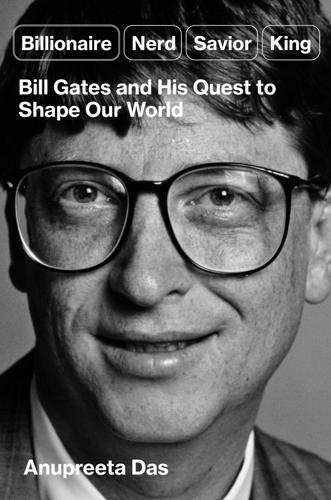
Billionaire, Nerd, Savior, King: Bill Gates and His Quest to Shape Our World
by
Anupreeta Das
Published 12 Aug 2024
David Yaffe-Bellany, “A Crypto Emperor’s Vision: No Pants, His Rules,” The New York Times, May 14, 2022. Also see: David Yaffe-Bellany, “The Man Who Was Supposed to Save Crypto,” The Daily, November 18, 2022. 27. Thomas D. Snyder, ed. “120 Years of American Education: A Statistical Portrait,” National Center for Education Statistics, January 1993, 85–86. 28. Robert X. Cringely [pen name], Triumph of the Nerds: The Rise of Accidental Empires, PBS documentary, June 1996. 29. Bill Gates, “If You Want to Understand Silicon Valley, Watch Silicon Valley,” GatesNotes, November 19, 2018. 30. Jordynn Jack, “ ‘The Extreme Male Brain?’ Incrementum and the Rhetorical Gendering of Autism,” Disability Studies Quarterly, 31 (2011): 3.
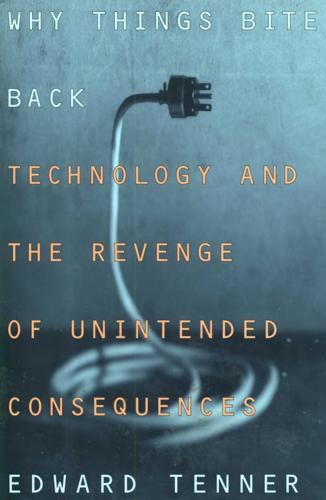
Why Things Bite Back: Technology and the Revenge of Unintended Consequences
by
Edward Tenner
Published 1 Sep 1997
If networks appear to open channels previously barred—and it's not clear how having to put ink on paper ever prevented sending a message to top management—they also make it possible to read files surreptitiously, monitor activities, and even trace message traffic to discover clusters of malcontents. Aside from such ethical lapses, a collegial style doesn't necessarily mean a flattening of power. The Info World magazine columnist "Robert X. Cringely" suggested not so long ago that the casual culture of Microsoft masked a management style that was at heart not so different from the hard-driving ways of the robber barons. ("You can work any eighty hours a week you want.") Of course, an authoritarian organization can be extremely productive, whether or not the iron fist is in a faded denim glove, but there is no evidence that networks as such make managers different.

Gambling Man
by
Lionel Barber
Published 3 Oct 2024
Masa turned to a new board member, Tadashi Yanai, boss of Fast Retailing (Uniqlo), for support. Yanai understood consumer psychology and how to build a nationwide brand with razor-thin margins. These were the skills Masa needed to succeed with his high-risk broadband venture. Yanai first contacted Masa in 1994 after reading Accidental Empires, Robert X. Cringely’s book on Silicon Valley and the rise of the personal-computer revolution. Seven years senior to Masa, he knew little about computers, but he sensed that the future was digital. One day, he invited the SoftBank boss to appear in a Uniqlo advertisement for his new clothes range. When Masa declined, Yanai arranged a meeting in person.12 The two men became the friendliest of rivals.

From Airline Reservations to Sonic the Hedgehog: A History of the Software Industry
by
Martin Campbell-Kelly
Published 15 Jan 2003
Richard Brandt, “A Tricky Tack for Borland,” Business Week, August 2, 1993: 44–45. 69. Interview with Gordon Eubanks in Jager and Ortiz, In the Company of Giants. 70. Ibid., p. 55. 71. Steve Lohr, Go To: The Story of The Programmers Who Created the Software Revolution (Basic Books, 2001). 72. Ibid., pp. 96–97. 73. Robert X. Cringely, Accidental Empires: How the Boys of Silicon Valley Made Their Millions, Battle Foreign Competition, and Still Can’t Get a Date (Addison-Wesley, 1992). 342 Notes to pp. 272–283 Chapter 9 1. Ralph Watkins, A Competitive Assessment of the US Video Game Industry (US International Trade Commission, 1984); Yankee Group, Software Strategies; Creative Strategies International, Computer Home Software (1983); Creative Strategies International, Cartridge-Based Software: Further Developments (1984). 2.
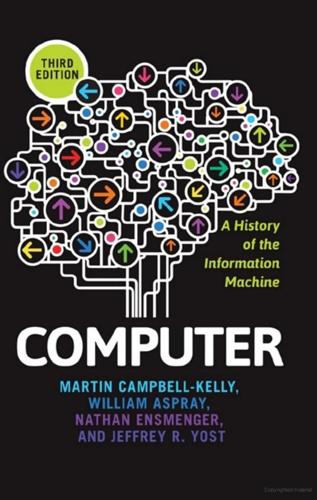
Computer: A History of the Information Machine
by
Martin Campbell-Kelly
and
Nathan Ensmenger
Published 29 Jul 2013
Stan Veit’s History of the Personal Computer (1993) is full of anecdotes and insights on the early development of the industry to be found nowhere else; Veit participated in the rise of the personal computer, first as a retailer and then as editor of Computer Shopper. The later period is covered by Robert X. Cringely’s Accidental Empires (1992); although less scholarly than some other books, it is generally reliable and is written with a memorable panache. Fred Turner’s Counterculture to Cyberculture (2006) provides a scholarly examination of the “New Communalists’” connections with and contributions to personal computing and online communities.
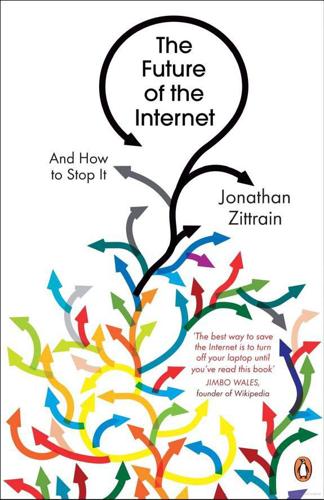
The Future of the Internet: And How to Stop It
by
Jonathan Zittrain
Published 27 May 2009
.”); Robert Seidman, America Online’s Elusive Exclusive with Time, Inc., IN, AROUND and online, Jan. 6, 1995 (“America Online announced an expanded agreement with Time, Inc. that will bring the ‘Entertainment Weekly’ magazine to America Online. The press release from America Online also stated that the agreement extends their exclusive arrangement with Time Magazine—that Time couldn’t be offered on any other online service.”). 43. See Robert X. Cringely, That Does Not Compute!, PBS, Sept. 17, 1997, http://www.pbs.org/cringely/pulpit/1997/pulpit_19970917_000543.html (“Compuserve [sic], which couldn’t decide whether it was a stodgy online service or a stodgy network provider doesn’t have to be either. AOL, which couldn’t decide whether it was an on-the-edge online service or an over-the-edge network provider, gets to stick to content and stop pissing off users by pretending to know what a modem is….
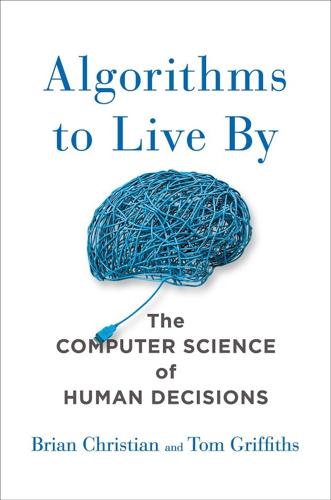
Algorithms to Live By: The Computer Science of Human Decisions
by
Brian Christian
and
Tom Griffiths
Published 4 Apr 2016
See also Internet advertising and “Akamaized” Exponential Backoff and malicious wedding seating plan Wedgwood, Emma weighted strategies Welch, Ivo Whitney, Hassler Whittaker, Steve Whittle, Peter Wikipedia Wilkes, Maurice Williams, Robin Win-Stay, Lose-Shift wireless networking wisdom wishful thinking Wittgenstein, Ludwig work hours World War II worst-case analysis Wright, Steven X-Files, The (TV show) Yeltsin, Boris Yngve, Victor Young, Dean Zelen, Marvin Zelen algorithm Zen and the Art of Motorcycle Maintenance (Pirsig) Zen of Python, The zero-sum zero-zero option Zijlstra, Peter Z-order Acknowledgments Thank you, first, to the researchers, practitioners, and experts who made time to sit down with us and discuss their work and broader perspectives: to Dave Ackley, Steve Albert, John Anderson, Jeff Atwood, Neil Bearden, Rik Belew, Donald Berry, Avrim Blum, Laura Carstensen, Nick Chater, Stuart Cheshire, Paras Chopra, Herbert Clark, Ruth Corbin, Robert X. Cringely, Peter Denning, Raymond Dong, Elizabeth Dupuis, Joseph Dwyer, David Estlund, Christina Fang, Thomas Ferguson, Jessica Flack, James Fogarty, Jean E. Fox Tree, Robert Frank, Stuart Geman, Jim Gettys, John Gittins, Alison Gopnik, Deborah Gordon, Michael Gottlieb, Steve Hanov, Andrew Harbison, Isaac Haxton, John Hennessy, Geoff Hinton, David Hirshliefer, Jordan Ho, Tony Hoare, Kamal Jain, Chris Jones, William Jones, Leslie Kaelbling, David Karger, Richard Karp, Scott Kirkpatrick, Byron Knoll, Con Kolivas, Michael Lee, Jan Karel Lenstra, Paul Lynch, Preston McAfee, Jay McClelland, Laura Albert McLay, Paul Milgrom, Anthony Miranda, Michael Mitzenmacher, Rosemarie Nagel, Christof Neumann, Noam Nisan, Yukio Noguchi, Peter Norvig, Christos Papadimitriou, Meghan Peterson, Scott Plagenhoef, Anita Pomerantz, Balaji Prabhakar, Kirk Pruhs, Amnon Rapoport, Ronald Rivest, Ruth Rosenholtz, Tim Roughgarden, Stuart Russell, Roma Shah, Donald Shoup, Steven Skiena, Dan Smith, Paul Smolensky, Mark Steyvers, Chris Stucchio, Milind Tambe, Robert Tarjan, Geoff Thorpe, Jackson Tolins, Michael Trick, Hal Varian, James Ware, Longhair Warrior, Steve Whittaker, Avi Wigderson, Jacob Wobbrock, Jason Wolfe, and Peter Zijlstra.
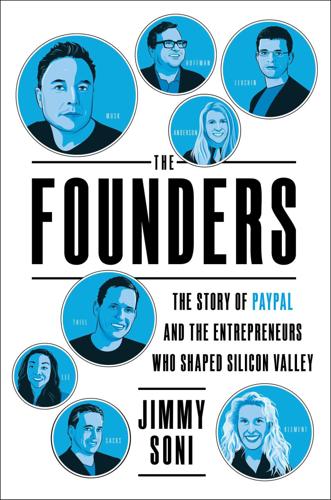
The Founders: The Story of Paypal and the Entrepreneurs Who Shaped Silicon Valley
by
Jimmy Soni
Published 22 Feb 2022
One engineer, Doug Ihde, was famous for his prowess as a software engineer—and for the mountainous collection of empty Diet Coke cans that populated his office. Levchin, too, guzzled coffee. Later in his life, during an interview for NerdTV, a short-lived PBS program, he’d expound on the virtues of late nights. The interviewer, Robert X. Cringely, had arrived at Levchin’s office before ten in the morning. Levchin had been there all night. “You’ve just been up all night. Why?” Cringely asked. “I’m having fun, and that’s what you do when you have fun, you just don’t want to stop,” Levchin replied, matter-of-factly. Then Levchin offers a lengthy meditation on the wonders of the wee hours.
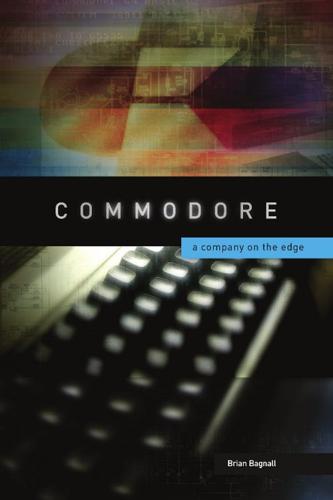
Commodore: A Company on the Edge
by
Brian Bagnall
Published 13 Sep 2005
The history of early computers has tended to focus on Microsoft, IBM, and Apple, snubbing contributions made by Commodore. “There is a lot of revisionism going on and I don’t think it’s fair,” says Commodore 64 designer Robert Yannes. “People wanted to ignore Commodore.” An early-popularized story of the microcomputer revolution was Accidental Empires, by Robert X. Cringely (born Mark Stephens). The former Apple employee perpetuated a select view of the microcomputer revolution—a view that not everyone accepts as accurate. In Infinite Loop, Michael Malone writes, “The pseudonymous Cringely is notorious for his sloppy way with facts.” In his book, Cringely said, “Commodore wasn’t changing the world; it was just trying to escape from the falling profit margins of the calculator market while running a stock scam along the way.”
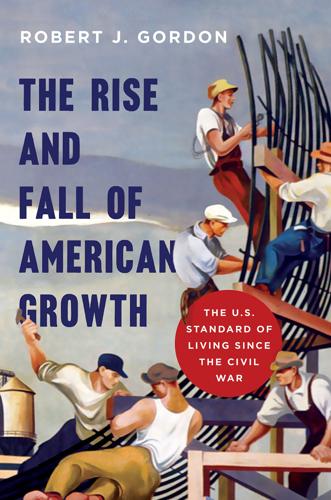
The Rise and Fall of American Growth: The U.S. Standard of Living Since the Civil War (The Princeton Economic History of the Western World)
by
Robert J. Gordon
Published 12 Jan 2016
In the past two decades digitalization has brought convenience and personalization throughout the world of entertainment and communication. Chapter 13 COMPUTERS AND THE INTERNET FROM THE MAINFRAME TO FACEBOOK If the automobile had followed the same development as the computer, a Rolls Royce would today cost $100 and get a million miles per gallon, and explode once a year killing everyone inside. —Robert X. Cringely, InfoWorld magazine INTRODUCTION The improvement in the performance of computers relative to their price has been continuous and exponential since 1960, and the rate of improvement dwarfs any precedent in the history of technology. The wonders achieved by computers and, since the mid-1990s, by the Internet have misled many analysts into believing that the current rate of economy-wide progress is the fastest in human history and will become even more rapid in the future.